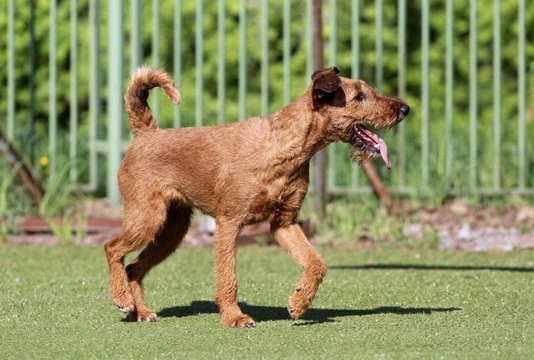
Hereditary Footpad Hyperkeratosis (HFH) in dogs
Hereditary footpad hyperkeratosis or HFH for short is a hereditary health condition that leads to the development of footpad corns in affected dogs, due to the abnormal growth of excessive skin cells on the feet that become thick and hard. The condition affects the pads of all four paws, and as well as causing corns, the hardening leads to cracks and sores developing on the paws as well, which are often deep and usually painful.
This in turn places the dog at additional risk of developing infections within the sores, as well as causing problems with walking normally.
As well as affecting the pads of the paws themselves, hereditary footpad hyperkeratosis also causes the claws on the paws to grow faster than normal, and become crumbly and misshapen and prone to splitting as they grow as well.
Because the condition is hereditary, this means that it is passed on via the gene pool from affected and carrier parent dogs to their offspring, and the condition cannot otherwise be caught or transmitted between dogs like contagious diseases can.
This means that the only way to prevent a dog from developing the condition is by means of ensuring that their parents do not pass it on to them, and in order to enable this, The Kennel Club oversees a health testing scheme for the condition, to allow the owners of breeds prone to the condition to find out their status before breeding.
In this article, we will look at hereditary footpad hyperkeratosis in more detail, including what sort of dogs can be affected by the condition, how the heredity of the condition works, and how to get dogs of at-risk breeds tested. Read on to learn more.
More about hereditary footpad hyperkeratosis
Hereditary footpad hyperkeratosis occurs due to a gene mutation in affected dogs, and because it is an autosomal recessive gene, a dog needs to inherit two copies of the mutated version in order to be affected by it.
The condition is not terminal although it can be hard to manage and can have a significant impact on the affected dog’s quality of life and general comfort, and dogs with the affected form of the condition should not be used for breeding, due to the risk of passing on either the affected or carrier form of the condition on to their offspring.
What sort of dogs can be affected by the condition?
Hereditary footpad hyperkeratosis has been identified at a rate of prevalence sufficient to pose a risk to the wider population of dogs across three different breeds: the Irish terrier, Kromfohrlander and the Dogue de Bordeaux. Around 10% of Dogue de Bordeaux dogs are either carriers of or affected by the condition.
Non-pedigree dogs with one parent from one of the above breeds may potentially inherit one copy of the gene mutation responsible for the condition too, although due to the hybrid vigour achieved by out crossing, it is unlikely for a cross breed dog to be affected. One caveat to bear in mind in that respect however, is that if two of the above breeds are crossed with each other, this will produce the same statistical chances of inheritance as if two pedigree dogs of one of the above breeds were mated with each other.
How does the heredity of the condition work?
Hereditary footpad hyperkeratosis is an autosomal recessive hereditary condition, which means that the status of any given dog when it comes to the condition depends on the status of both of their parent dogs, not just one. Inheriting one copy of the gene mutation responsible for the condition is not enough to lead to the affected form of the condition on its own.
Dogs are assigned a status for the condition, being clear, carrier and affected respectively.
The condition can be passed on as follows:
- Two clear dogs will produce a clear litter.
- Two affected dogs will produce an affected litter.
- Two carrier dogs will produce a mixture of 50% carriers, 25% affected and 25% clear.
- A clear dog and a carrier will produce 50% carriers and 50% clear.
- A clear dog and an affected dog will produce a litter of carriers.
- A carrier and an affected dog will produce a litter of 50% carriers and 50% affected.
How to get your dog tested for the markers of hereditary footpad keratosis
If you own a dog from one of the three breeds that are at potential risk for the condition and wish to breed from them, it is important to find out their status (and that of their potential mating match) before going ahead, to ensure that the puppies will be healthy.
In order to do this, you will need to send off a DNA sample from your dog to one of The Kennel Club’s approved laboratories, who will then return the results of your dog’s status to you. The DNA sample can be in the form of a cheek swab or a blood sample, which your vet can draw for you.



